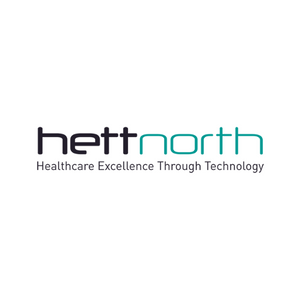In the ever-evolving healthcare landscape, patient outcomes serve as a critical measure, indicating the success of medical interventions and the quality of care provided. This blog post aims to delve into the significance of measuring patient outcomes and illuminate strategies that prioritise a patient-centric approach in healthcare practices.
Understanding Patient Outcomes:
Patient outcomes encompass a range of factors that indicate the impact of healthcare interventions on an individual's health and well-being. This includes the patient's overall health status, recovery progress, quality of life, and satisfaction with the care received. By focusing on patient outcomes, healthcare providers can gauge the success of treatments and tailor future interventions to enhance the patient experience.
Key Metrics for Measuring Patient Outcomes
-
Clinical Metrics:
Clinical metrics provide insight into the effectiveness of medical treatments and interventions. Parameters such as blood pressure levels, cholesterol levels, and disease-specific markers are crucial indicators. Tracking these metrics allows healthcare professionals to assess the impact of medical interventions on the patient's physiological health.
-
Functional Outcomes:
Functional outcomes measure the patient's ability to perform daily activities and tasks post-treatment. This could include mobility, pain levels, and overall physical functioning. By evaluating functional outcomes, healthcare providers can understand the practical implications of their interventions on the patient's daily life.
-
Patient-Reported Outcomes (PROs):
PROs involve obtaining direct feedback from patients regarding their symptoms, quality of life, and overall well-being. Surveys and questionnaires are common tools for collecting this data. By incorporating the patient's perspective, healthcare providers gain valuable insights into the subjective experiences and preferences that shape the patient's journey.
-
Patient Satisfaction Surveys:
Assessing patient satisfaction is integral to understanding the overall patient experience. Satisfaction surveys capture feedback on communication, empathy, and the perceived effectiveness of treatments. This data is instrumental in refining healthcare practices to align with patient expectations and preferences.
Implementing Patient-Centric Practices:
-
Communication and Shared Decision-Making:
Effective communication is at the core of patient-centric care. Healthcare providers should engage patients in discussions about their treatment plans, ensuring they understand the options available and actively involving them in decision-making. Shared decision-making fosters a sense of collaboration and empowers patients to play an active role in their healthcare journey.
-
Regular Follow-Up and Monitoring:
Establishing a system for regular follow-up and monitoring is essential for tracking patient progress. This includes post-treatment check-ins, monitoring symptoms, and adjusting treatment plans as needed. Proactive follow-up demonstrates a commitment to ongoing care and helps identify any issues promptly.
-
Patient Education and Empowerment:
Educating patients about their conditions, treatment options, and self-management practices is crucial for fostering empowerment. Informed patients are better equipped to actively participate in their care, leading to improved adherence to treatment plans and better long-term outcomes.
The Future of Patient-Centric Care
In conclusion, measuring patient outcomes is a fundamental aspect of delivering patient-centric care. By incorporating a holistic approach that considers clinical metrics, functional outcomes, and patient-reported experiences, healthcare providers can ensure that their practices align with the needs and preferences of the individuals they serve. Prioritising effective communication, shared decision-making, and continuous patient engagement further enhances the overall quality of care, ultimately placing the patient at the forefront of the healthcare journey.
%20(1).png?width=500&height=58&name=HETT%20insights%20logo%20RGB-04%20(1)%20(1).png)


